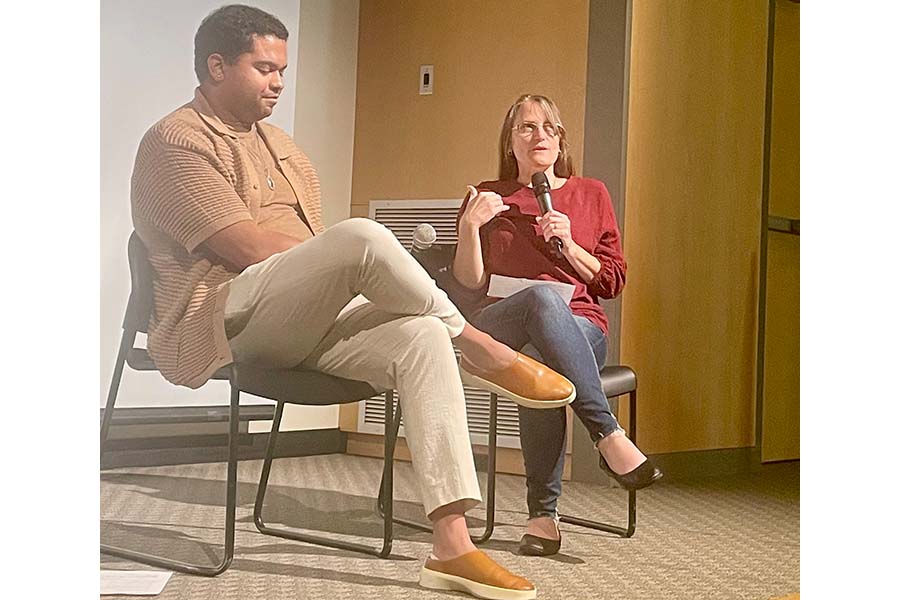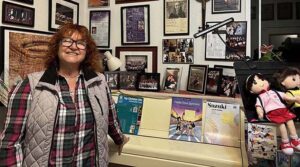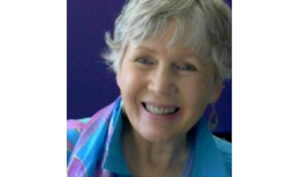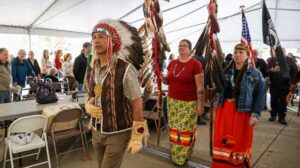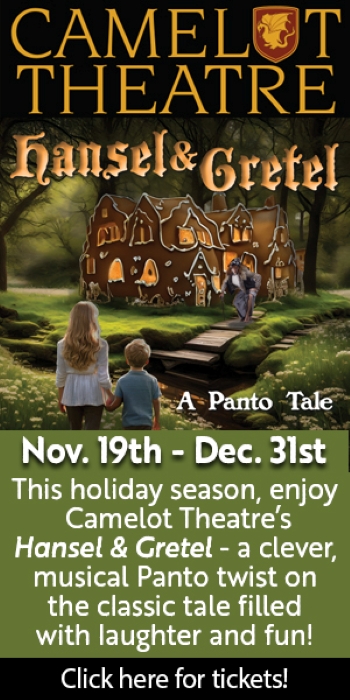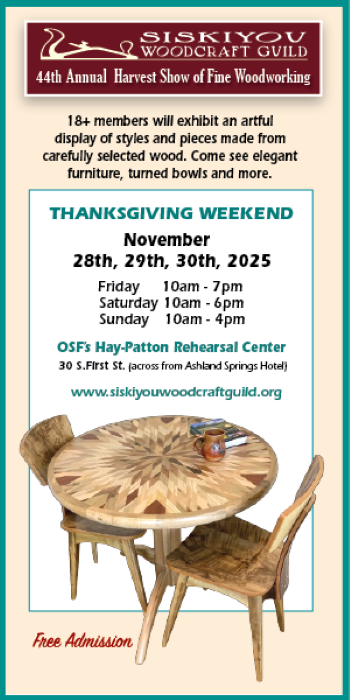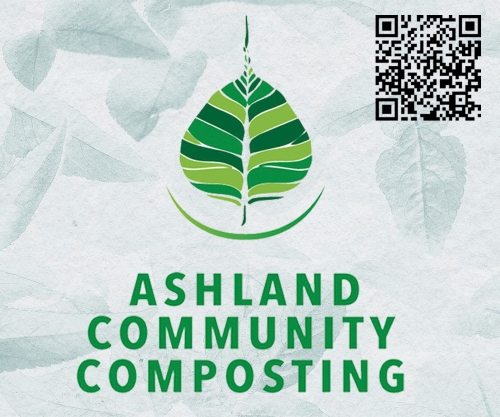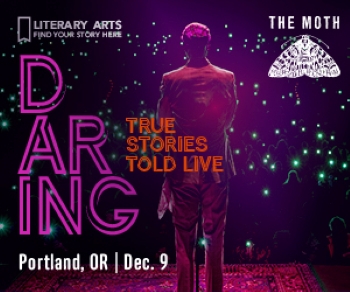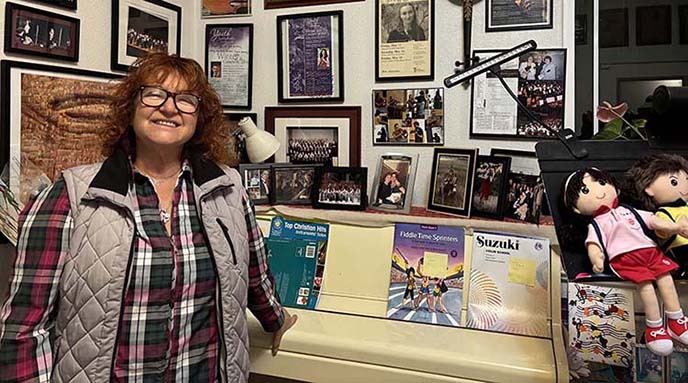Oregon Remembrance Project leaders discuss why it’s important to know about Oregon’s era of sundown towns and a lynching in Coos Bay
By Meg Wade for Ashland.news
Four dozen community members turned out Thursday evening to hear about the work of the Oregon Remembrance Project in a program titled “How Do You Reconcile a Lynching? A Story of Justice and Redemption,” hosted by the Ashland Sunrise Project on the Southern Oregon University campus.
Cassie Preskenis, who sits on the city of Ashland’s Social Equity & Racial Justice Advisory Committee and chairs the Public Arts Advisory Committee, opened the evening and introduced Grants Pass Remembrance founder and ORP community engagement director Gabrielle Johnsen. Johnsen was followed by ORP founder Taylor Stewart.
Stewart and Johnsen both focused their remarks on the personal journeys that led them to work on matters of truth and reconciliation and racial justice.
Johnsen described a journey “of curiosity” after she first moved to Grants Pass 13 years ago. She dug into the city’s history as a sundown town that posted signs instructing African Americans to leave town before sunset.
“As I learned more of and reflected on the deep brokenness of racism and racial hierarchy that has been a part of our country’s story for so long, my question eventually clarified into this: What does reconciliation look like for our country?” Johnsen said.
Discovered a role model
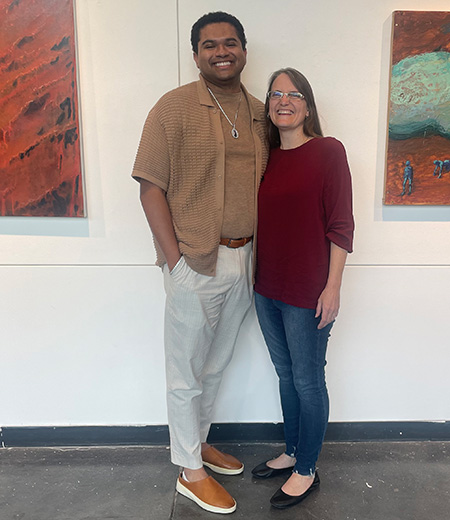
It was at that time, she said, that she came upon the work of lawyer Brian Stevenson, known for his work with the Equal Justice Initiative, and author of the book “Just Mercy.” Stevenson became a major influence on Johnsen’s life.
Quoting from “Just Mercy” Johnsen said: “Truth and reconciliation are sequential. You have to know the truth before you can reconcile.” That’s when “it clicked,” she told the audience, and she thought, “I can start here with my community. I knew the truth about my community’s history. I could see how most of my neighbors didn’t.”
That is what led her and a couple of friends to produce a booklet on the history of Grants Pass as a sundown town. “[We] told the truth, because I wanted reconciliation, I wanted to heal,” Johnsen said.
Johnsen was introduced to Stewart via connections at the Equal Justice Initiative.
Stewart also cited the initiative and Stevenson as major influences, going so far at one point in the evening to say that he often asks himself “WWBSD,” or “What would Brian Stevenson do?”
A transformation
Much of Stewart’s story centered on his reluctance to step into his present role and his own personal transformation along the way.
“I graduated high school, [and] registered Republican with the dream of becoming a tough-on-crime prosecutor,” he told the audience. He recalled, “I gave a speech my junior year of college in favor of capital punishment, because that’s what I thought true justice looked like. I was on a much different career trajectory than the one that I am on right now. And I probably would still be on that same trajectory had Donald Trump not been elected in 2016.”

That presidential election, he said, made him understand that “racism is alive and well. And I started to realize that the answer to the question I’d wondered my whole life: ‘What would I have done had I been around during the Civil Rights era?’ was: ‘What was I doing right now?’”
Change in direction
This realization led to a major change in direction. Stewart enrolled in law school as he had planned, but then left after the first day upon hearing from fellow students that discussions of race, gender and sexuality were typically discouraged in the classroom. It was at that time that he heard back from the Equal Justice Initiative with details on a lynching victim here in Oregon: Alonzo Tucker of Coos Bay, who was lynched by a mob in 1902.
Stewart would soon be in dialogue with the community members in Coos Bay about that historical event, and joined a local task force planning a memorial for Tucker. The memorial was unveiled in 2021, at the first-ever Juneteenth celebration in Coos Bay.
On Thursday, Stewart talked at length about his uncertainty in taking on work with the ORP, challenges the Alonzo Tucker memorial met along the way, and the discomfort he felt finding himself thrust into leadership, whether it was delivering his first workshop presentation or speaking in front of thousands at TEDx in Portland. He lingered on his experience, he said, to make sure that others understood that “you don’t have to be an extraordinary person to do extraordinary things,” and that “it’s less about being the right person for the moment as it is about doing the right thing for the moment.”
From lynchings to state executions
While ORP was successful in placing a memorial for Tucker, Stewart said he doesn’t see that as the final endpoint for this process of truth and reconciliation in Oregon. As he researched the history of lynchings while working on the memorial, he said, he found “that the decrease in the number of lynchings of African Americans matched up perfectly with the increase in the number of state executions in the United States.” The majority of those on death row, he noted, and disproportionate to their part of the U.S. population, are African American, all of which led him to conclude “that lynching never really ended. It suddenly evolved into the death penalty.”
“I realized that reconciling the lynching of Alonzo Tucker would be incomplete so long as Oregon still has its death penalty,” Stewart said. Stewart has since joined Oregonians for Alternatives to the Death Penalty, which is exploring a ballot initiative to amend the Oregon Constitution to ban the death penalty.
What can be done
Stewart and Johnsen focused the last part of the program on actions that audience members could take with the Ashland Sunrise Project to continue the process of truth and reconciliation locally. Those included leading book clubs, oral history projects or fundraising for ORP and similar efforts, as well as engaging in the Justice for Hakiym campaign.
The Ashland Sunrise Project will also be transitioning away from lecture-style events, they said, and into more collaborative ones in which residents can come together to think about next steps to take as a community. The first of these is scheduled for September; those who are interested can received updates via the Ashland Together email list.
Other upcoming events include the annual Juneteenth celebration in Pear Blossom Park in Medford. This year’s event is Saturday, June 21 from 11 a.m. to 8 p.m. More information can be found at baseoregon.org/event/2025-juneteenth-celebration.
Ashland resident and freelance journalist Meg Wade’s byline has appeared in Mother Earth News and other publications. Email Ashland.news at [email protected].

